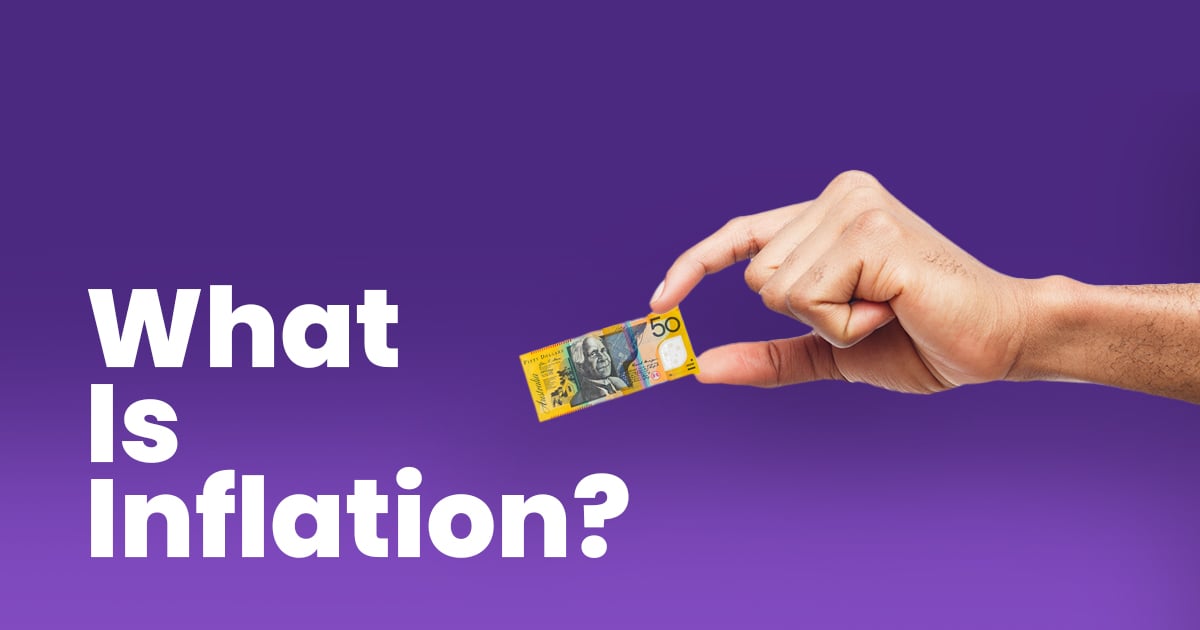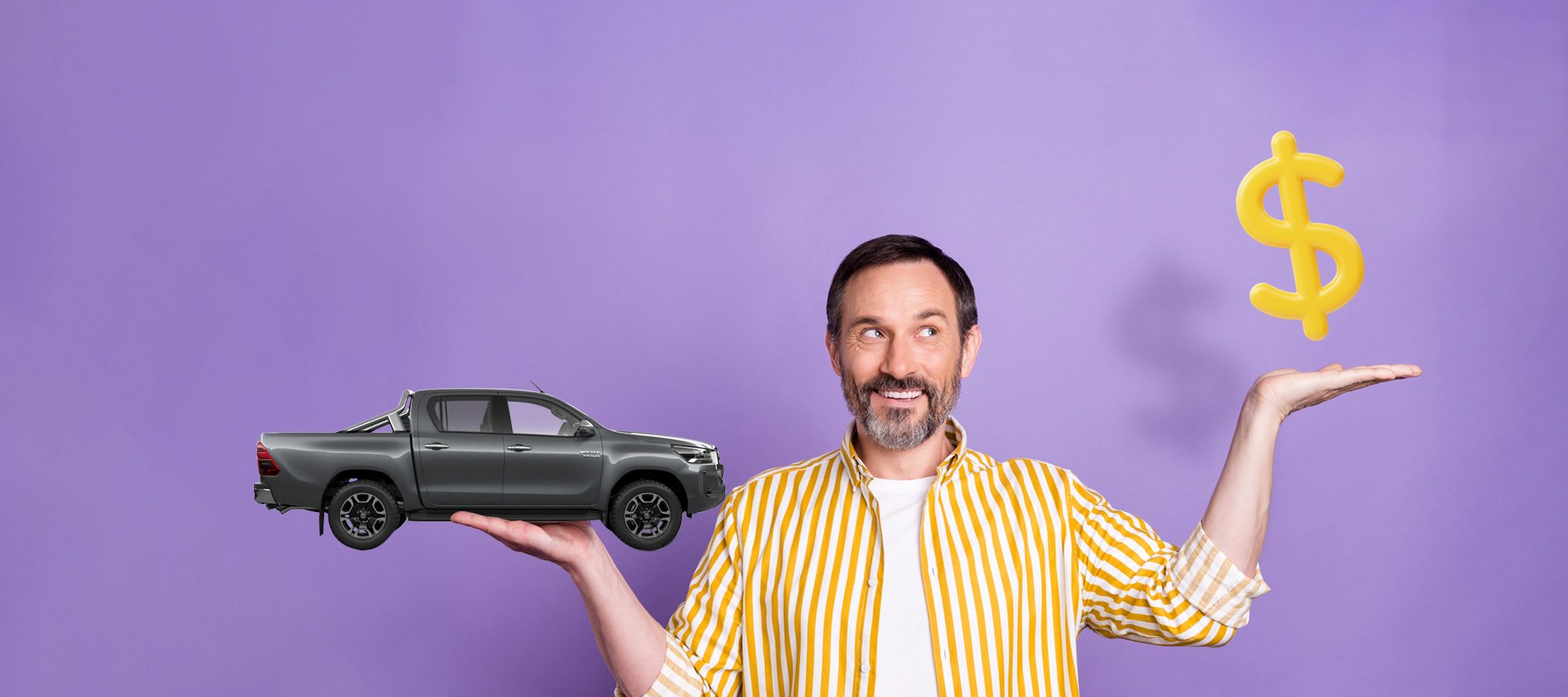Share this
The Impact of Inflation on The Cost of a Car (2023 Updated)
by Chris Hopkins on Dec 13, 2022 1:34:57 PM
Inflation rockets as the world recovers from the pandemic and faces new challenges. Everything might seem more expensive nowadays—from buying a car to doing your weekly grocery shopping. Consumer price inflation recently hit 6.1%, but what does this mean for car prices? Will you pay more upfront? And what about running costs? How does inflation affect car loans?
We'll answer all your questions and more in this comprehensive guide to inflation and the cost of buying a car in 2022.
What Is Inflation?

Inflation refers to rising prices as purchasing power declines. When demand outstrips supply, prices go up. Everything, from construction to sales, faces more pressure under increasing demand. Consumers have fewer choices or bartering power. Sellers have more control.
When prices go up, the value of the currency decreases. So, for example, let's say a car costs $20,000 in a healthy economy. When inflation reaches 5%, the vehicle cost will go up 5%, costing $21,000.
While it might seem like you pay more (and some people might), the currency loses value as inflation increases. If your wages also increase by 5%, then proportionately, you're not paying more for the car. However, many people don't have the luxury of a significant pay increase at the rate of inflation and suffer from rising prices.
Inflation is a natural part of the economy. Over the years, inflation fluctuates as the economy grows and shrinks.
Average Car Price 2022

The covid-19 pandemic changed many things about the world. Buying cars became more expensive during the global health crisis—and prices haven't decreased. On average, car prices have increased 5.5% since 2021. Some manufacturers' prices increased by 17%, and specific models went up by 40.3%.
Today, Australia's average new car price costs $40,729, including taxes, fees, and car loan interest. The most expensive cars are in Western Australia and the cheapest are in Tasmania. But, how do these prices compare to two or more years ago?
If the average car price today is around $40,000, this time last year, you could have paid approximately $37,800 for the same vehicle. Moreover, when you calculate car loan interest on the extra $2,200, you could pay an additional $263.61 in interest (based on a three-year term and a 7.5% rate). We'll explain more about the relationship between interest and inflation later.
How Does Inflation Impact the Cost of Buying a Car?
Inflation refers to the general increase in prices and decrease in currency value. Unfortunately, price rises tend to increase before wages go up. Therefore, many Aussies will find themselves paying more for goods than they did a year or two ago. Over time, inflation causes prices to go up steadily. However, in 2022, we're seeing a sharp rise in inflation.
Other than inflation, what impacts the cost of cars? When demand overtakes supply, prices go up. Over the last few years, car supply has struggled to maintain normal production output. And yet, more and more people want to buy new or used vehicles.
- Covid-19: Beyond the economic impact of the pandemic, covid has affected car prices in more ways than one. As people started working from home, there was a shift to living away from the CBD and capital cities. Living in regional Australia means less reliance on public transport and a greater need for personal vehicles. The trend and demand for cars haven’t dwindled.
- Natural disasters: Floods in Queensland and New South Wales saw around 22,000 vehicles written off. An already under-supplied market saw more and more people needing to replace their cars.
- Supply chain disruptions: Suppliers and manufacturers struggled to get hold of parts and deliver goods during the various lockdowns in the last few years. Despite much of the world returning to normal, supply chains have yet to recover fully, and car production remains below pre-2020 levels.
Used vs. New Cars
It's not just new cars that have increased in price. Used vehicles are similarly more expensive now than they were a few years ago. Inflation affects all aspects of life—new and used products go up in price. The average used car price is $33,000—not much below the cost of a new car.
Industries hit by covid will take time to recover, and with new inflation challenges, used car prices might not come down any time soon.
Inflation and Car Running Costs
Buying a car is more expensive today than before, and car running costs are similarly much higher.
- According to the ABS, fuel prices have gone up 32.1%. The Russian war in Ukraine and ongoing covid-19 restrictions continue to push fuel prices up.
- Car insurance has similarly increased with inflation, with a 21% year-on-year increase from 2021.
Most Expensive Cars to Own
With car prices going up, you'll want to avoid the pricier end of the range. The most expensive cars to buy in Australia in 2022 are:
- Bentley Mulsanne Speed: $569,522
- Ferrari GTC4Lusso: $578,000
- Rolls-Royce Ghost: $595,000
- Rolls-Royce Wraith: $645,000
- Porsche 911 GT2 RS: $645,400
- Rolls-Royce Dawn: $749,000
However, consider running costs and financing. If buying a brand new, fuel-efficient (or electric-powered) car will save you money down the line, it's worth considering choosing the pricier vehicle over a cheaper, used car.
Least Expensive Cars to Own
In the current cost of living crisis, most people will prefer more affordable vehicles. While cars have increased in price, there are plenty of affordable options to get your hands on. Moreover, if you're interested in purchasing a cheap family car, consider buying sooner rather than later. As inflation continues, car prices will go up further.
The cheapest cars in Australia to own and run:
- Hyundai i30: $23,720
- Mitsubishi Outlander: $34,490
- Toyota Camry: $30,990
- Subaru Outback: $39,990
- Mitsubishi Pajero Sport: $44,440
- Suzuki Baleno: $18,490
- Honda Odyssey: $27,600
- Hyundai Ioniq: $41,390
Inflation and Interest Rates
The upfront cost of your new or used car isn't the only expense. When you apply for a car loan to pay for your new vehicle, you will need to consider interest costs. The interest rate is similarly affected by inflation.
To battle inflation, the RBA raises the cash rate to 3.1%. Lenders and banks use the cash rate to inform their interest rates. When the cash rate goes up, interest rates increase. Higher interest rates discourage spending, which limits the impact of inflation.
The RBA sets the cash rate on the first Tuesday of every month (except January). If the last five months suggest anything, we might expect rates to continue to increase over the next few months, if not years.
However, higher interest rates could mean you pay more for your vehicle. On top of rising costs because of inflation, you could spend much more on interest repayments. Since May 2022, interest rates have gone up 2.75%. Furthermore, there is a reason to suggest interest rates will continue to increase.
Should you lock in a fixed-rate car loan before interest rates continue soaring?
Variable Interest
Variable rate car loans fluctuate with the cash rate. When the cash rate goes up, your interest rate will go up. Similarly, when the cash rate decreases, you pay less interest. The amount of interest you pay will vary from month to month. In a healthy economy, this could save you money. However, as interest rates rise, you might find your variable-rate car loan gets more expensive over time.
Fixed-Rate Interest
Fixed-rate interest car loans mean you pay the same amount of interest every month, regardless of the cash rate. Fixed-rate loans typically have higher interest rates. However, when the cash rate rises, you might pay less than those with a variable-rate loan.
Securing a fixed-rate car loan now could save you money in the future when the cash rate goes up again.
When Is the Right Time to Buy a Car?
Buying a car is a significant financial commitment. Whether you buy a used car with cash or pay for a new vehicle on finance, you want to get the best deal possible. Yes, cars are more expensive than they were a year or two ago. Inflation has pushed prices up in all corners of the market—from loan interest rates to fuel costs and insurance.
The car industry might soon recover from the pandemic and supply chain disruption, but demand is unlikely to dwindle.
Moreover, inflation is likely to continue to increase over the coming months and years. Moreover, as inflation hits, interest rates will also soar. Purchasing your dream car now might save you a fortune down the line.
Consider the right car. While cheaper, used cars might cost less to buy, newer electric vehicles could save you fuel costs. Speak to an expert to ensure you make the best car-buying decision for you.
How We Can Help
Contact an expert car finance broker today to find out how you can secure a competitive interest rate before inflation pushes car prices up higher.
Share this
- Car Loans (34)
- Car loan (12)
- Cars (9)
- EV (8)
- Electric Cars (7)
- Personal Loan (6)
- business loan (5)
- hybrid cars (5)
- Car Finance (4)
- EOFY (4)
- bad credit (4)
- caravan finance (4)
- chattel mortgage (4)
- car prices (3)
- interest rates (3)
- Holiday (2)
- credit score (2)
- family cars (2)
- summer (2)
- Caravan Loan (1)
- Caravan Loans (1)
- Equipment Loans (1)
- Future (1)
- Marine Finance (1)
- Tradies (1)
- car broker (1)
- caravan (1)
- caravan and camper sales (1)
- caravan parks (1)
- consumer finance (1)
- finance (1)
- finance approval (1)
- jet ski (1)
- new car (1)
- payday loans (1)
- April 2024 (4)
- March 2024 (6)
- February 2024 (5)
- January 2024 (3)
- December 2023 (6)
- November 2023 (7)
- October 2023 (5)
- September 2023 (6)
- August 2023 (4)
- July 2023 (5)
- June 2023 (2)
- February 2023 (1)
- January 2023 (4)
- December 2022 (4)
- November 2022 (1)
- October 2022 (5)
- September 2022 (1)
- July 2022 (4)
- June 2022 (3)
- May 2022 (3)
- April 2022 (2)
- March 2022 (3)
- February 2022 (4)
- January 2022 (2)
- December 2021 (1)
- November 2021 (3)
- October 2021 (3)
- September 2021 (7)
- August 2021 (4)

/Ausloans%20home/logos/Ausloans_logo_black.png?width=180&height=94&name=Ausloans_logo_black.png)
Comments (1)